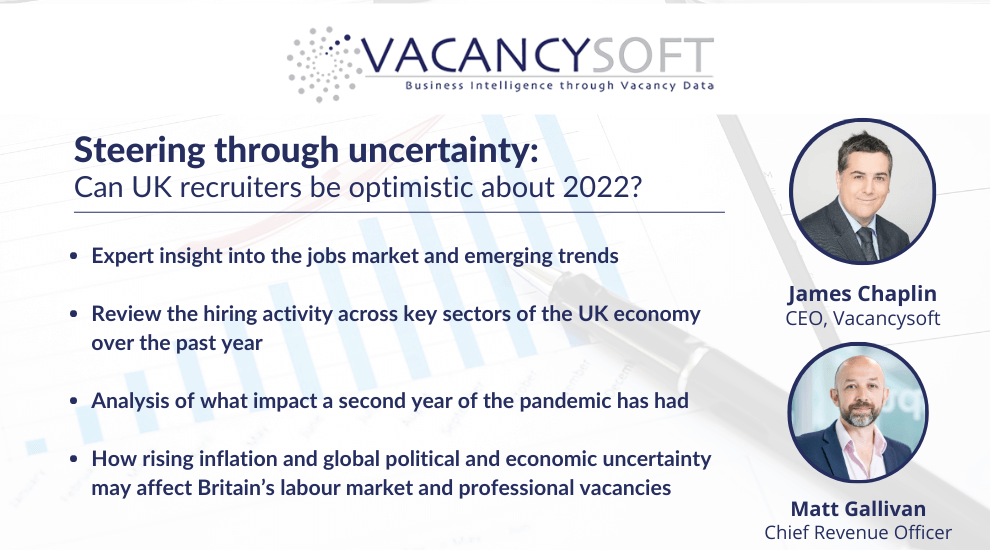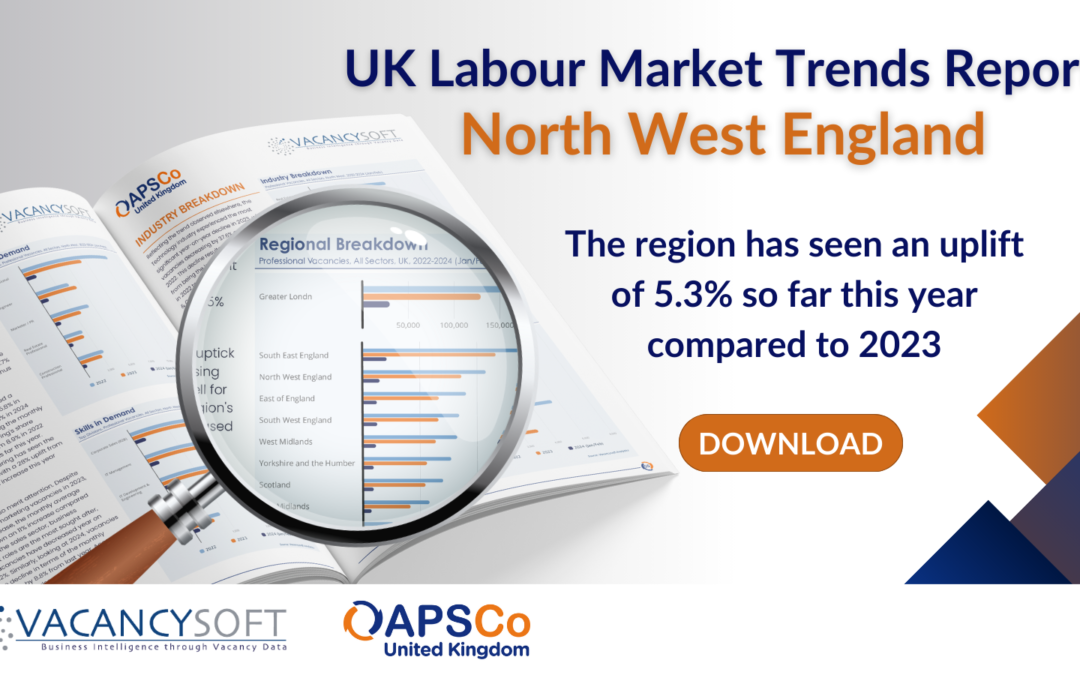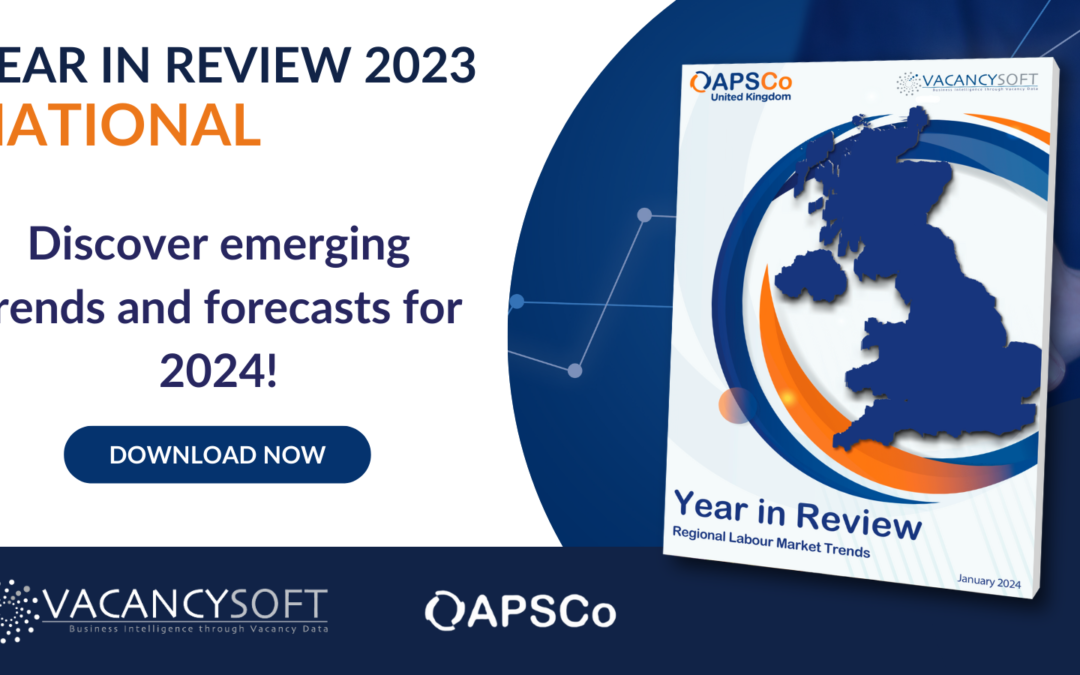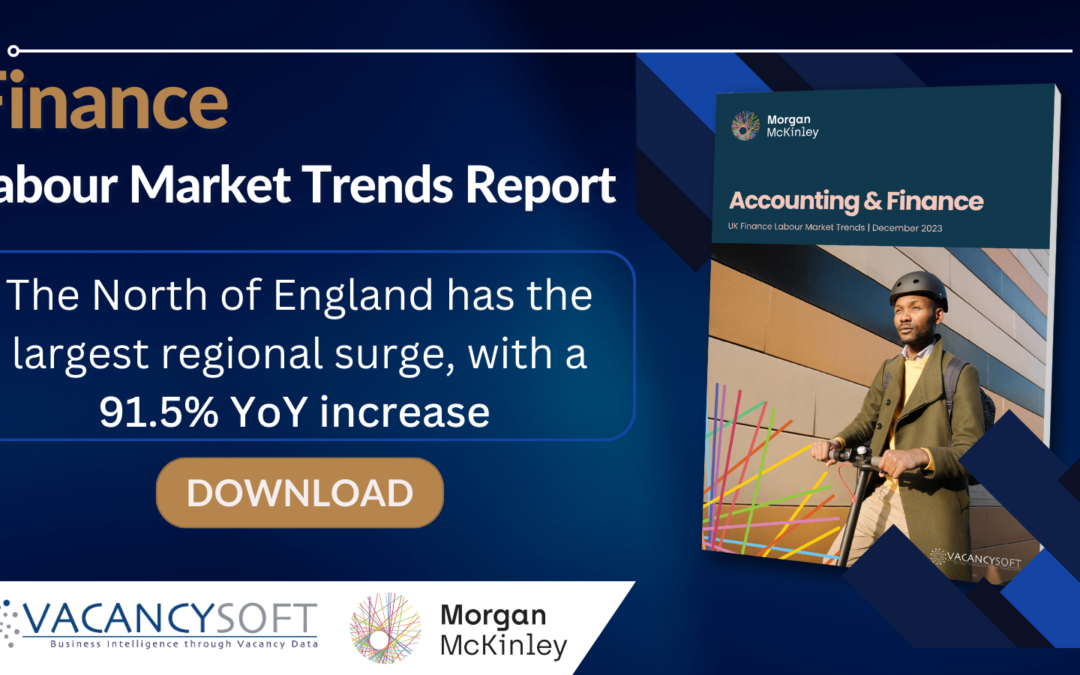
Steering through uncertainty: Can UK recruiters be optimistic about 2022?
As we are started the year 2022 we wanted to take time to look back to 2021, of what has been a frenetic year, with recruiters challenged in unique ways never seen before, the big question was: What next?
This free and exclusive virtual event gathered Britain’s recruitment industry leaders to discuss the following insights:
• Review the hiring activity across key sectors of the UK economy over the past year and present expert insight into the jobs market and emerging trends
• Analyse what impact a second year of the pandemic has had and look ahead to how rising inflation and global political and economic uncertainty may affect Britain’s labour market and professional vacancies.
James Chaplin, Vacancysoft CEO presenting, where attendees also had the opportunity to both network with each other and ask questions about the presentation directly.
Matt Gallivan, Chief Revenue Officer talks about tools that allow you to make data-driven decision making by analysing the market as to what is happening in your markets, whether that be by sector, location or by role. Vacancy Analytics gives you knowledge and data at your fingertips.
Agenda as follows:
12.00 doors open – introduction and short networking
12.05 20-minute presentation on market activity by James Chaplin
12.25 15-min Data-driven decision making in 2022
12.40 Annual Magazine launch
12.45 Q&A
13.00 Event ends
If you are responsible for business planning and strategy don’t miss this unique opportunity to get insights on the latest market activity and what it could mean for your business.
This webinar is useful to: Recruitment Firm Directors, Operational & Marketing Managers in Recruitment Firms, Corporate Recruiters, Managers in RPOs and MSPs. HR Managers.
Download our Year in Review Magazine 2021 edition below!
In our annual magazine 2021 edition you will find a full review of the hiring activities across key sectors of the UK economy over the past year. The magazine covers trends seen in Britain’s tech, life sciences, law, finance, real estate and insurance industries.
Alternatively, download our presentation slides below:

North West England – UK Regional Labour Market Trends, March 2024
After enduring a challenging six months, which ultimately led to the UK entering a technical recession, signs of recovery are finally beginning to emerge. The North West region has managed to increase its share of the national total from 7.5% in 2022 to 8.5% in 2023. Turning to the current year, we observe an uptick in the northwest’s monthly average, increasing by 5.3% compared to 2023, which bodes well for regional recruiters.

Australia Legal Sector Trends, March 2024
The beginning months of 2024 have shown a decrease in recruitment compared to the post-pandemic boom seen in 2021-2023. Despite a dip in 2020 due to the pandemic, the Australian legal market experienced robust growth over the following years.

Year in Review: UK Tech Labour Market Trends, February 2024
The deceleration of tech-centric sectors in London during 2023 mirrors the broader downturn experienced across the UK, with IT vacancies plummeting by 50.5% in the capital compared to 36.3% regionally. Hence the fact that demand for IT professionals has fallen 42.8% compared to the peaks seen in 2022, is a temporary blip.

Year in Review: UK Legal Labour Market Trends, January 2024
At a time when the sector has been depressed by the cyclical downturn due to quantitative tightening, this has led to a drop of 34.8% in London and 19.4% regionally. Within law firms, real estate remains the top skill in demand, although its market share has slipped from 22% in 2022 to 18% in 2023. This is partly due to a hefty 37% fall in vacancies in this area in 2023 as the commercial property sector has slowed down.

Year in Review: UK Finance Labour Market Trends, January 2024
The cyclical nature of Financial Services has meant that as interest rates rose, and the economy appeared on the edge of recession, recruitment slowed down significantly. All this has led to professional vacancies falling in 2023, with a 34% year-on-year decrease from 2022.

Year in Review: UK Life Sciences Labour Market Trends, January 2024
Perhaps inevitably, the post-pandemic period has resulted in a hangover for the sector, as the combination of quantitative tightening leading to a slowdown in funding for emerging biotechnology firms, combined with the delays associated with getting new trials approved over the period, has meant that in recruitment terms, 2023 really was a slow year. Indeed, vacancies in 2023 were 42.6% lower than in 2022.

Year in Review: UK Insurance Labour Market Trends, January 2024
In a world of ever-increasing risk, specialist insurance services rise as businesses look to mitigate their exposure. Hence, for the industry, 2023 has proven to be a busy year, with the sector being one of the top performers across all industries in terms of year-on-year activity this past year. On that point specifically, we saw vacancies drop by 15.1% compared to 2022. That compares to an all-industry fall of 30%.

Year in Review Magazine: Technology & Transformation in the UK
Every generation bears witness to a technological jump which has the capacity to change the way we work. For example, from the first generation of mobile phones in the 1980s, through to smart phones and mobile devices this has transformed the way we do business. Nonetheless, we have seen increasing numbers of jobs displaced as different technologies have achieved scale.

Year in Review: UK Regional Labour Market Trends, January 2024
In a sign of the times, industrial engineering, which encompasses aerospace and defence, has proven to be the top performing industry this past year, up 21% on 2022. At the same time the impact of quantitative tightening on the London market has been felt heavily across both finance and technology. As a result, vacancies in the capital are down 40% on the prior year.

Accounting & Finance – UK Finance Labour Market Trends Report, December 2023
2023 has seen a significant drop in accounting vacancies across financial services and commerce & industry. March marked the year’s peak in financial services with 532 vacancies, a 31% decrease from 2022, and the only increase was a 12% rise in November, according to the latest UK Finance Labour Market Trends report by Morgan McKinley and market data analysts Vacancysoft.


